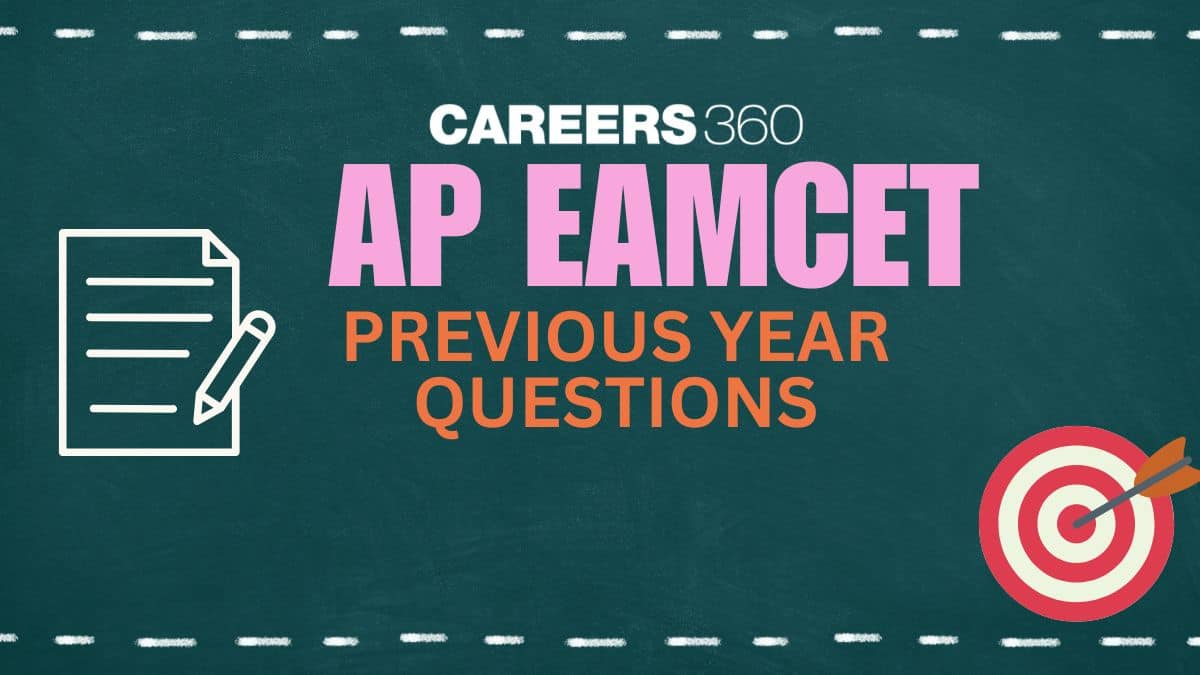AP EAMCET Previous Year Question Papers with Solutions - Download Free PDF
AP EAMCET Previous Year Question Papers - AP EAMCET represents an essential examination through which students access professional admissions for Andhra Pradesh-based institutions. The AP EAMCET examination evaluates potential candidates who aim to study Engineering through PCM combinations or Agriculture and Medical through PCB combinations. Students who want to succeed in AP EAMCET 2025 must utilize the AP EAMCET previous year question papers as an effective preparation approach. The AP EAMCET paper analysis of past examinations provides students understanding of test structure, develops their analytical abilities and boosts their comfort level. AP EAMCET exam dates are out now and they are May 19–20, 2025 for Agriculture and Pharmacy, and May 21–27, 2025 for Engineering. The admit card is out now and it can be obtained from the official website. Let us see How to Prepare for AP EAMCET with JEE Mains.

Why is Solving AP EAMCET Previous Year Question Papers with Solutions Essential?
AP EAMCET implements a defined exam structure that includes queries from Physics together with Chemistry together with Mathematics for PCM candidates yet Physics along with Chemistry and Biology for PCB candidates. Students must definitely practice the AP EAMCET previous year question papers because it will give them the following benefits:
You must practice AP EAMCET PYQs to understand the previous years patterns better.
It will help you with better time management skills.
You will be able to identify the areas that require more preparation.
You will be more confident on the exam day.
AP EAMCET Previous Year Question Paper PCM and AP EAMCET previous year Question Paper PCB
The exam authority has made available the AP EAMCET 2024 question papers for Engineering and Agriculture & Pharmacy on the official website. Candidates can download the AP EAMCET 2024 question paper PDF from this page. The PYQs will help the students have a thorough idea of the exam pattern of the AP EAMCET question paper 2025 for both PCM and PCB. Practicing the paper will only increase the chances of scoring better marks and passing the exam with flying colours.
AP EAMCET Official Question Paper Pdf for Engineering
AP EAMCET 2024 Official Question Paper for Agriculture & Pharmacy
AP EAMCET 2024 Unofficial Question paper with Solution Key
AP EAMCET Question Paper 2023 PDF
Candidates can check the AP EAMCET 2023 question paper pdf from the below table
Frequently Asked Questions (FAQs)
You can appear any number of times.
No negative marking, only +1 for correct answer.
Popular Courses and Specializations
List of colleges accepting AP EAMCET
Browse Engineering Colleges by State
Questions related to AP EAMCET
On Question asked by student community
Please clarify your question so that we can provide you with a clear answer. If you have a caste certificate, you can apply under that respective category. For your reference, we are sharing the link to the Careers360 article. You can find information there about the documet required for admission
Hi,
Based on your marks, your expected rank will be in 15,001 - 50,000 range. You can also check how to calculate your rank with the help of AP EAMCET Rank Predictor by visiting the Careers360 page.
Based on the AP EAMCET (EAPCET) ranking, the top colleges are generally the government and established university colleges, followed by high-ranking private institutions. Admission to these colleges is strictly based on the AP EAMCET rank achieved. The official AP EAMCET counselling process lists colleges by closing rank, allowing candidates to
Hello,
Yes, you can get a job in other states of India even if you wrote the EAMCET exam.
EAMCET is only for getting admission into colleges in Andhra Pradesh or Telangana for engineering, pharmacy, or agriculture courses. Once you complete your degree, your job opportunities are not limited to
